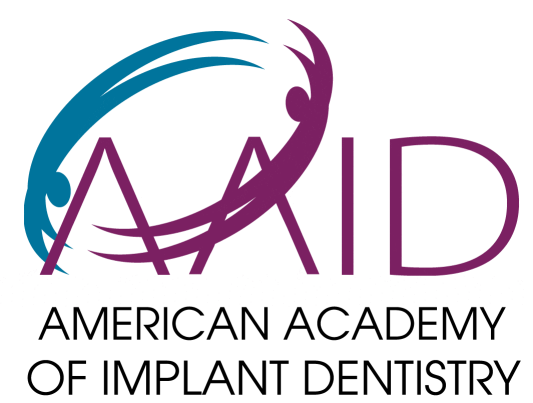The effect of food on oral health is profound and bidirectional, with your dietary choices directly influencing tooth decay, gum disease, and oral tissue health, while your oral condition simultaneously affects your ability to properly chew and absorb essential nutrients. At Lansdowne Family Dental, we help patients understand that the foods and beverages you consume can either strengthen and protect your teeth and gums or contribute to serious dental problems including cavities, periodontal disease, and tooth loss.
This dynamic relationship between diet and oral health creates a cycle where good nutrition supports healthy teeth and gums, while poor dietary choices accelerate dental deterioration. Key ways food impacts your oral health include:
- Sugar and acid production – Harmful bacteria feed on sugars, producing acids that erode tooth enamel
- Nutritional deficiencies – Lack of essential vitamins and minerals weakens teeth and gum tissues
- pH balance disruption – Acidic foods and drinks directly damage tooth enamel over time
- Protective nutrients – Calcium, phosphorus, and vitamins strengthen teeth and support healing
Understanding this interplay between what we consume and the health of our teeth and gums is crucial for maintaining a healthy, functional smile throughout life. The condition of your oral health can also affect the nutrients you’re able to absorb, creating an important connection between dental wellness and overall health.
This comprehensive guide will explore how specific foods impact your oral health, identify the best and worst dietary choices for your teeth and gums, and provide practical strategies for using nutrition to support optimal dental wellness.

The Sugar-Cavity Connection
One of the most well-documented relationships in dental health is the link between sugar consumption and the risk of developing dental caries (cavities). This connection is so widely recognized that it has become a cornerstone of oral hygiene education.
The mechanism behind this relationship is relatively straightforward. When we consume sugary foods and drinks, we create an environment in the mouth that is conducive for harmful bacteria to thrive. These bacteria feed on the sugar, producing acids as a byproduct. Over time, these acids erode and demineralize the tooth enamel, leading to the formation of cavities.
The cariogenic (cavity-causing) potential of a food or drink depends on several factors, including the type of sugar, the frequency of consumption, and the overall pH level in the mouth. Refined, added sugars like sucrose, fructose, and high-fructose corn syrup tend to be the most problematic, as they provide a readily available energy source for bacteria. Consuming sugary items frequently throughout the day, rather than in one sitting, also increases the risk, as it creates a constant acidic environment.
Conversely, foods and beverages that are lower in fermentable carbohydrates and have a higher pH (less acidic) pose a lower threat for cavity development. This includes many fruits, vegetables, dairy products, and unsweetened teas. While these items are not completely risk-free, they are generally safer for dental health when consumed in moderation as part of a balanced diet.
Periodontal Disease and Nutrition
While the connection between diet and cavities is fairly straightforward, the relationship between nutrition and periodontal (gum) disease is more complex and multifaceted. Gum disease is influenced by a variety of factors, including oral hygiene, genetics, medications, smoking, and stress. Dietary habits play a role, but their precise impact is less clear-cut than with tooth decay.
That said, there is evidence that certain nutrients can influence the body’s inflammatory response and immune function, both of which are key components in the development and progression of periodontal disease. For example, vitamins C and E, as well as the mineral zinc, have been shown to have anti-inflammatory properties that may help protect gum tissues.
Conversely, a diet high in refined carbohydrates, unhealthy fats, and processed meats has been associated with increased inflammation and a higher risk of gum disease. The mechanisms behind this are not fully understood, but it is believed that these dietary patterns may disrupt the balance of beneficial and harmful oral bacteria, triggering an excessive inflammatory response.
It’s important to note that gum disease is a complex, multifactorial condition. While diet plays a role, other lifestyle factors and individual predispositions also have a significant influence. Maintaining good oral hygiene through brushing, flossing, and regular dental check-ups remains the primary defense against periodontal problems.
Erosive Tooth Wear
Another dietary concern for dental health enthusiasts is the frequent consumption of acidic foods and drinks. These can increase the risk of erosive tooth wear, a condition where the tooth enamel is gradually worn down, making teeth more susceptible to damage and decay.
Common culprits include citrus fruits, soft drinks, wine, and sports drinks. The acidity in these items can gradually dissolve the mineral components of tooth enamel, leading to thinning, sensitivity, and an increased likelihood of cavities forming.
The risk of erosive wear is influenced by factors like the pH level, titratable acidity, and frequency of consumption. Beverages with a pH below 5.5 are generally considered erosive, as the critical pH for enamel dissolution is around 5.5. Consuming acidic items in one sitting is less harmful than sipping on them throughout the day, as saliva has more opportunity to neutralize the acid.
Protecting Tooth Enamel with Calcium
Calcium is a vital mineral for maintaining strong, healthy teeth. It is a key structural component of tooth enamel, and ensuring adequate calcium intake can play a significant role in preventing dental issues.
When calcium levels in the body are sufficient, this mineral can be continuously deposited into tooth enamel, helping to rebuild and strengthen it. Conversely, if calcium intake is inadequate, the body may draw calcium from the teeth to maintain blood calcium levels, weakening the enamel over time.
Dairy products like milk, cheese, and yogurt are excellent sources of calcium, as are leafy greens, beans, and fortified foods. For individuals who struggle to meet their calcium needs through diet alone, supplements may be a helpful addition.
Other Dietary Factors Influencing Oral Health
Beyond the commonly discussed relationships between diet, sugar, acidity, and dental health, there are other dietary elements and oral conditions worth exploring:
Vitamin and Mineral Deficiencies: Insufficient intake of vitamins A, C, D, and the minerals iron, zinc, and magnesium have all been linked to an increased risk of oral health problems. These nutrients play important roles in immune function, tissue repair, and oral bacteria balance.
Antioxidants: Foods rich in antioxidants, such as berries, green tea, and dark chocolate, may help protect against oxidative stress and inflammation in the mouth, potentially reducing the risk of gum disease.
Probiotics: Emerging research suggests that consuming probiotic-rich foods like yogurt, kefir, and fermented vegetables may help promote a healthy oral microbiome, potentially suppressing the growth of harmful bacteria.
Hydration: Adequate hydration and saliva production are important for maintaining a balanced oral pH and clearing away food debris. Dehydration can lead to a dry mouth, which increases the risk of cavities and gum disease.
The American Dental Association’s Stance
The American Dental Association (ADA) has taken a proactive stance on the topic of diet and nutrition in relation to oral health. They have issued various guidelines and policies emphasizing the importance of balanced eating for optimal dental wellbeing.
The ADA recommends a diet rich in fruits, vegetables, whole grains, and lean proteins, while limiting sugary and acidic foods and beverages. They also encourage consuming dairy products to ensure adequate calcium intake. Additionally, the ADA advises drinking water instead of sugary drinks and avoiding constant snacking throughout the day, which can create a constant acidic environment in the mouth.
Beyond these broad dietary recommendations, the ADA has also called for more research to better understand the complex relationship between nutrition and specific oral health conditions. They recognize the need for continued exploration in this area to provide more tailored guidance to dental professionals and the public.
For residents of Ashburn, Leesburg, Sterling, and Lansdowne, VA, choose Lansdowne Family Dental for quality dental care. We offer various dental services with a patient-centric approach. Start your dental journey with us. Contact us!
Conclusion
The foods and drinks we consume have a profound impact on the health of our teeth and gums. From the direct effects of sugar and acidity to the indirect influence of various vitamins and minerals, our dietary choices play a critical role in determining our oral wellbeing.
By being mindful of the nutritional needs of our teeth and gums, and making informed choices about the foods and beverages we ingest, we can take a proactive approach to maintaining a healthy, functional smile for life. Consulting with dental professionals and following the guidance of organizations like the ADA can help us navigate this important relationship between diet and oral health.
FAQs
How does the health of the mouth affect nutrient consumption?
- The state of one’s oral health can influence the ability to chew and digest food properly, impacting nutrient absorption.
Are there specific foods that can help strengthen teeth?
- Yes, foods rich in calcium, phosphorus, and vitamin D, such as dairy products, leafy greens, and fish, can help fortify teeth.
How can one reduce the risk of cavities from sugary foods?
- It’s essential to limit the intake of sugary foods and drinks, practice good oral hygiene, and visit the dentist regularly for check-ups.
What are some signs of erosive tooth wear?
- Symptoms include tooth sensitivity, discoloration, and a change in the tooth’s shape or appearance.
Can dietary supplements support oral health?
- While supplements can provide essential nutrients, it’s always best to obtain these from natural food sources. However, in cases of deficiency, supplements might be recommended.
How often should one visit the dentist for optimal oral health?
- It’s generally advised to visit the dentist every six months for a routine check-up and cleaning, but individual needs may vary.
Next Steps
Now that you’re equipped with knowledge about the role of diet in dental health, it’s time to take action. Evaluate your dietary habits, make necessary adjustments, and consult with your dentist to ensure your teeth remain strong and healthy for years to come.






